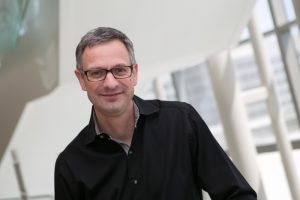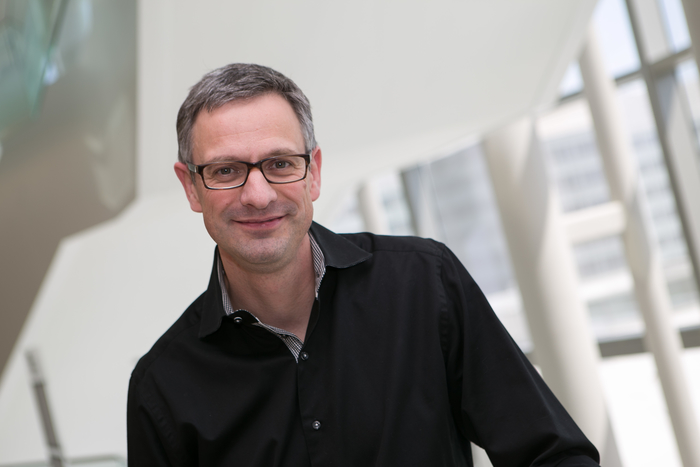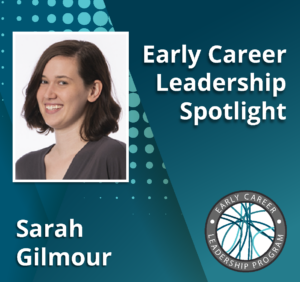The Genetics Society of America (GSA) is pleased to announce that Job Dekker of the University of Massachusetts Medical School is the recipient of the 2018 Edward Novitski Prize. The award honors investigators who have exhibited “an extraordinary level of creativity and intellectual ingenuity in the solution of significant problems in genetics research.” Dekker, a Howard Hughes Medical Institute investigator, is recognized for scientific contributions that include the development of chromosome conformation capture—a technique that has revolutionized chromosome research.

Job Dekker
Chromosome conformation capture, or 3C, allows researchers to study the interactions of chromosomes at resolutions and scales previously impossible to attain. In 3C, chromatin is treated with a crosslinking chemical that causes chromosomal regions that are near each other to be chemically linked together. By isolating these crosslinked regions of chromatin and determining their DNA sequences, geneticists can deduce which parts of the genome are in proximity to each other. Although the foundation of the technique seems simple, no one before Dekker had formulated a practical way to take advantage of it for a high-throughput molecular assay like 3C.
Dekker developed the approach while he was working as a postdoctoral fellow in Nancy Kleckner’s lab at Harvard. His original aim was to create a method that would aid his research on homologous chromosome pairing, but he soon recognized that the new technique could be used for much more.
“His invented approach has ushered in a completely new era in the study of chromosomes; has impacted and stimulated diverse disciplines from cytology to molecular biology to polymer physics; and has revolutionized the fields of genomics and human genetics,” Kleckner says.
3C is now used in labs around the world and has spawned numerous spinoff techniques; some of the most exciting research employing these methods has come from Dekker’s own lab. His group found that, contrary to the then-popular idea that chromatin exists in an essentially randomly arranged blob, chromatin is actually organized into different types of domains and compartments. Chromosomal compartments allow massive amounts of chromatin to be spatially separated into distinct functional sub-nuclear neighborhoods, preventing inappropriate mixing of parts of chromosomes that are differentially regulated.
One of Dekker’s lab’s most influential findings is the discovery of topologically associating domains. These domains represent the structural and functional units of gene regulation: genes located within these domains are acted on by regulatory elements contained within these domains, while also being isolated from regulatory elements in other topologically associating domains.
The team also discovered how chromosomes become tightly packed into their recognizable rod shapes in preparation for mitosis. Further, Dekker and his group pioneered the use of chromosome conformation capture data to assemble the linear sequence of complete genomes.
The body of work produced in Dekker’s lab has led to his recognition as one of the most important investigators in his area of research. “In my opinion, Dekker is the very best scientist of his generation working in the chromosomes field. He would bring appropriate honor to the memory of Ed Novitski,” says Kleckner, who received the GSA’s Thomas Hunt Morgan Medal in 2016.
The Novitski Prize recognizes a single experimental accomplishment or a body of work in which an exceptional level of creativity and intellectual ingenuity has been used to design and execute scientific experiments to solve a difficult problem in genetics. It recognizes the beautiful and ingenious experimental design and execution involved in genetics research. The Prize, established by the Novitski family and GSA, honors the memory of Edward Novitski (1918–2006), a Drosophila geneticist and lifelong GSA member who specialized in chromosome mechanics and meiosis through the construction of modified chromosomes.
The Prize will be presented to Dekker at the Annual Drosophila Research Conference in Philadelphia, which will take place from April 11th–15th, 2018.













